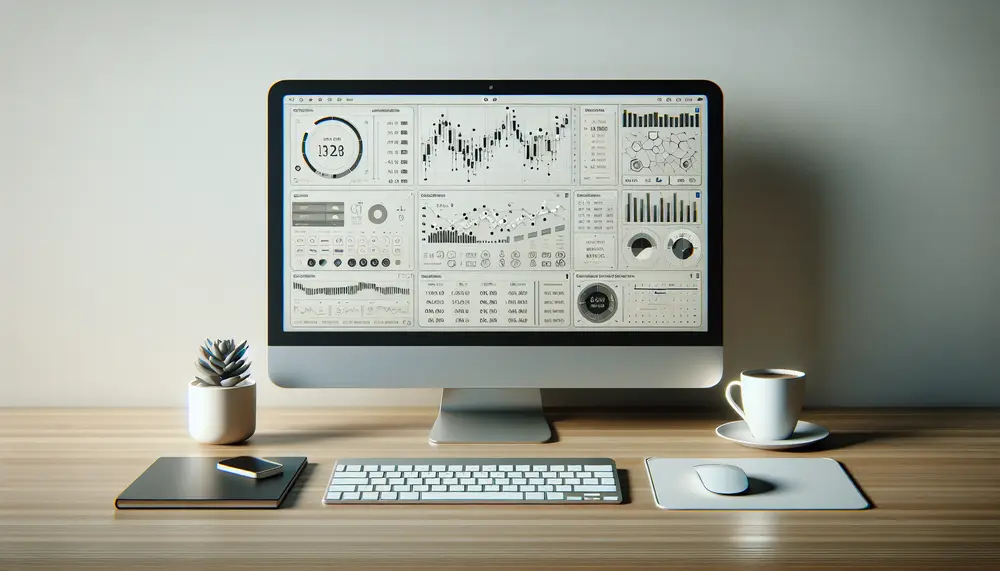Market Depth
Market Depth
What is Market Depth?
For those diving into the world of trading, the term Market Depth will undoubtedly come up. But what exactly is it? Market Depth, also known as Depth of Market, is a measurement that gives traders an insight into supply and demand for a specific financial security or commodity.
Understanding Market Depth
Market Depth is not a solitary figure or static calculation. In fact, it's a constantly changing, dynamic overview that presents a real-time summary of active buying and selling at different price levels. These transactions are usually showcased in a list format, known as a Market Depth list. This list displays the quantity of items being offered (supply) and the range of prices at which willing buyers are looking to purchase (demand).
How is Market Depth Used?
Traders use Market Depth data to gain an insight into market liquidity, price direction, and trading volume. This information assists traders in making informed decisions about the right time to buy or sell. A deeper Market Depth suggests higher liquidity, which usually means the trader can execute orders without significantly affecting the price.
Significance of Market Depth
Understanding Market Depth can be the key factor that differentiates a successful trader from an unsuccessful one. It grants visibility into the market trends, providing a glimpse at where the price might head. For instance, if the number of buy orders is significantly higher than sell orders at a particular price, it could signify a potential upward move in the future.
Limitations of Market Depth
While Market Depth is a useful tool, it's important to know that it doesn't provide an absolute prediction of market movements or guarantee success in trading. Other factors such as global economic news, investor sentiment and market news play significant roles in price fluctuations. Therefore, traders should use Market Depth as one of several tools in their strategy toolkit.
Final Thoughts
To sum up, Market Depth is a trading term that refers to the volume of orders available at different price levels for a given security or commodity. It provides traders with vital information on supply, demand, and potential price movements. Having a solid grasp of Market Depth can propel your trading strategies, but it is crucial to use it wisely and in combination with other trading indicators.
Blog Posts with the term: Market Depth

Bitfinex is a sophisticated cryptocurrency trading platform offering advanced tools and features for professional traders, including margin trading, derivatives, lending markets, and high liquidity. The guide provides an in-depth look at Bitfinex's functionalities such as customizable interfaces, diverse order types,...

Bitget is a global cryptocurrency trading platform offering spot trading, futures contracts, and copy trading with advanced technology for speed and security. The article details Bitget's user-friendly interface, diverse services, commitment to security through multiple layers of protection, and the...

Bitstamp is a reputable cryptocurrency exchange established to offer secure and user-friendly trading services, catering to both beginners and experienced traders with its focus on reliability and regulatory compliance. Founded in 2011, Bitstamp has adapted through various challenges by moving...

Understanding Market Depth: The Battle of Supply and Demand Market Depth Analysis is a crucial tool for traders and investors to understand the supply and demand dynamics of the financial market. By analyzing the order book, traders can gain insights into...

Binance is a leading global cryptocurrency exchange offering tools for both beginners and experienced traders, with features like spot trading, futures, margin trading, staking, Launchpad token offerings, and a mobile app. The platform emphasizes user-friendliness in its interface design and...

Crypto market analysis apps are essential for traders in the volatile cryptocurrency market, providing real-time data, trend predictions, and comprehensive analytics to help make informed trading decisions. These tools democratize trading by equipping both novice and experienced traders with advanced...

Robinhood offers a user-friendly platform for crypto trading with features like Market Orders, Limit Orders, and Stop Orders without commission fees. Setting up an account is quick and requires identity verification; the interface provides easy navigation, real-time pricing, market news,...

Bitcoin trading began with the creation of Bitcoin by an anonymous person or group known as Satoshi Nakamoto, who published a white paper in 2008 and mined the first block on January 3, 2009. The early days saw enthusiasts trade...

Blocktrade is a crypto trading platform designed for both beginners and experts, offering advanced features, educational resources, and a user-friendly interface. It emphasizes security, regulatory compliance, diverse asset options, high-performance transaction execution, and global accessibility to enhance the cryptocurrency trading...

The 1 Hour Trading Strategy for Crypto is a short-term technical analysis-based approach that requires quick decision-making and risk management to capitalize on hourly price fluctuations in the volatile cryptocurrency market. It involves using indicators like MACD and RSI, setting...

BitDATA Exchange (BitEx) is a cryptocurrency exchange platform that offers a wide range of cryptocurrencies, advanced security features like two-factor authentication and SSL encryption, and user-friendly tools for both novice and experienced traders. It supports various trading options including margin...

Altcoins are cryptocurrencies that emerged after Bitcoin, offering diverse technologies and purposes, leading to the creation of various altcoin trading platforms with different features. When choosing a platform, traders should consider security measures like encryption and 2FA, tools for market...

Understanding Bitcoin trading involves learning about market dynamics, interpreting data and charts for forecasting price movements, and employing various strategies like day trading or swing trading to optimize profits. Technical analysis is a key tool in this process, using historical...

Cryptocurrency trading involves buying and selling digital currencies like Bitcoin and Ether to profit from price fluctuations, using exchanges or CFDs. Traders must understand market dynamics, leverage risks in CFDs, the influence of Bitcoin on altcoins, and employ tools for...


